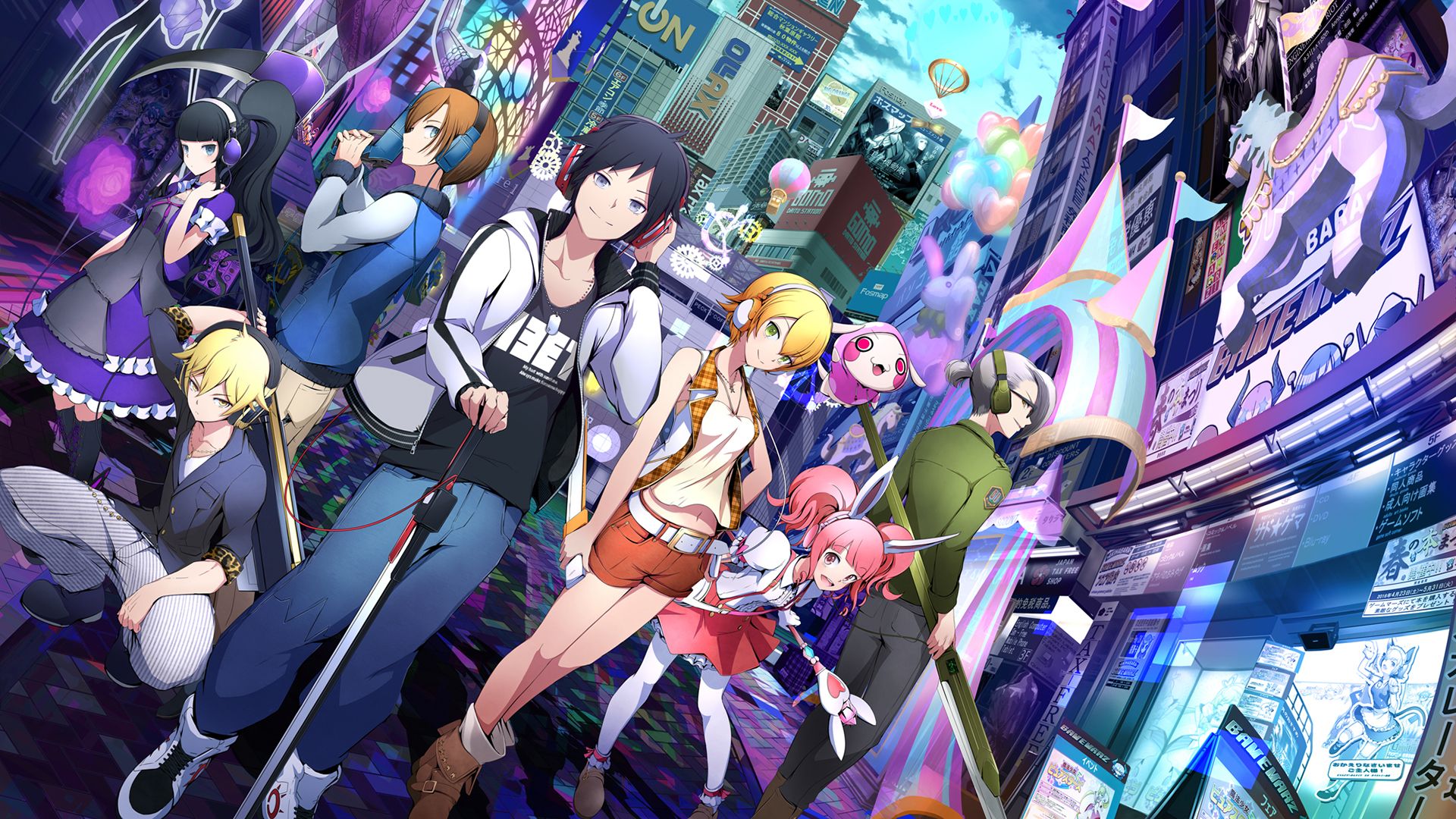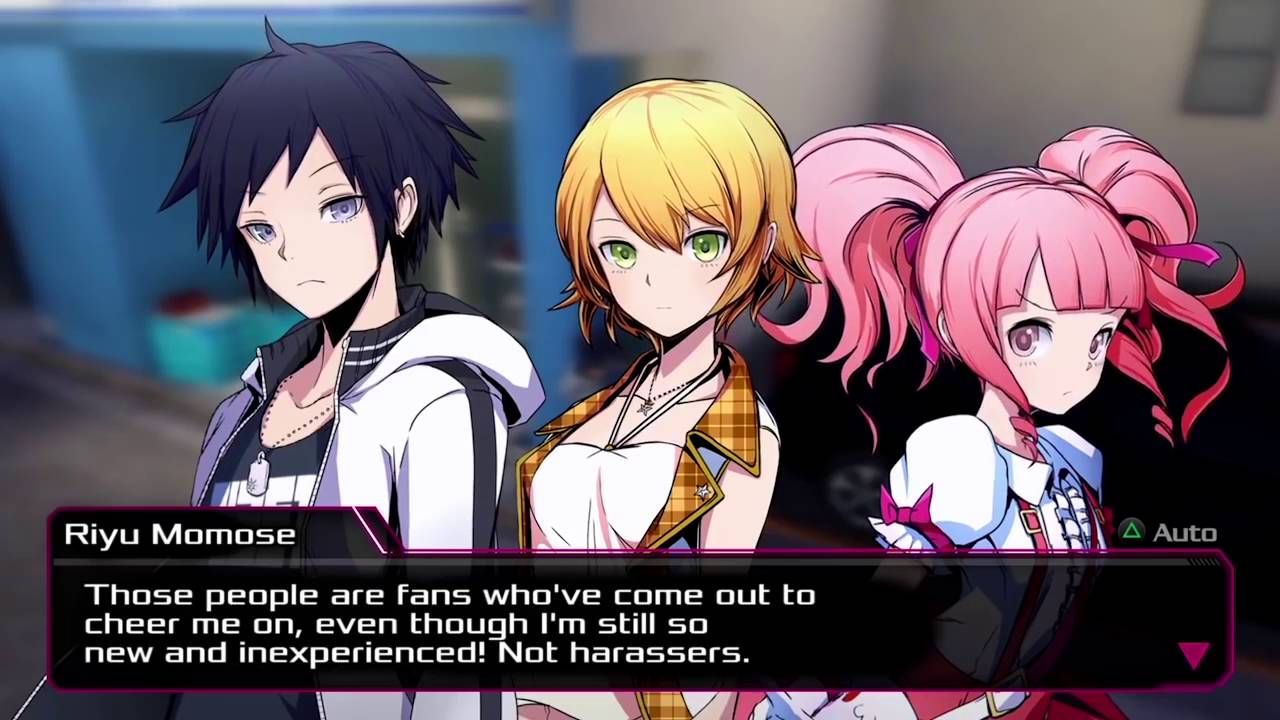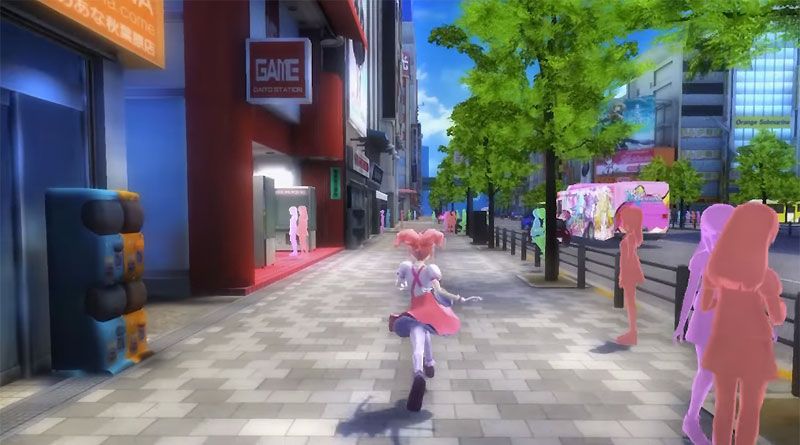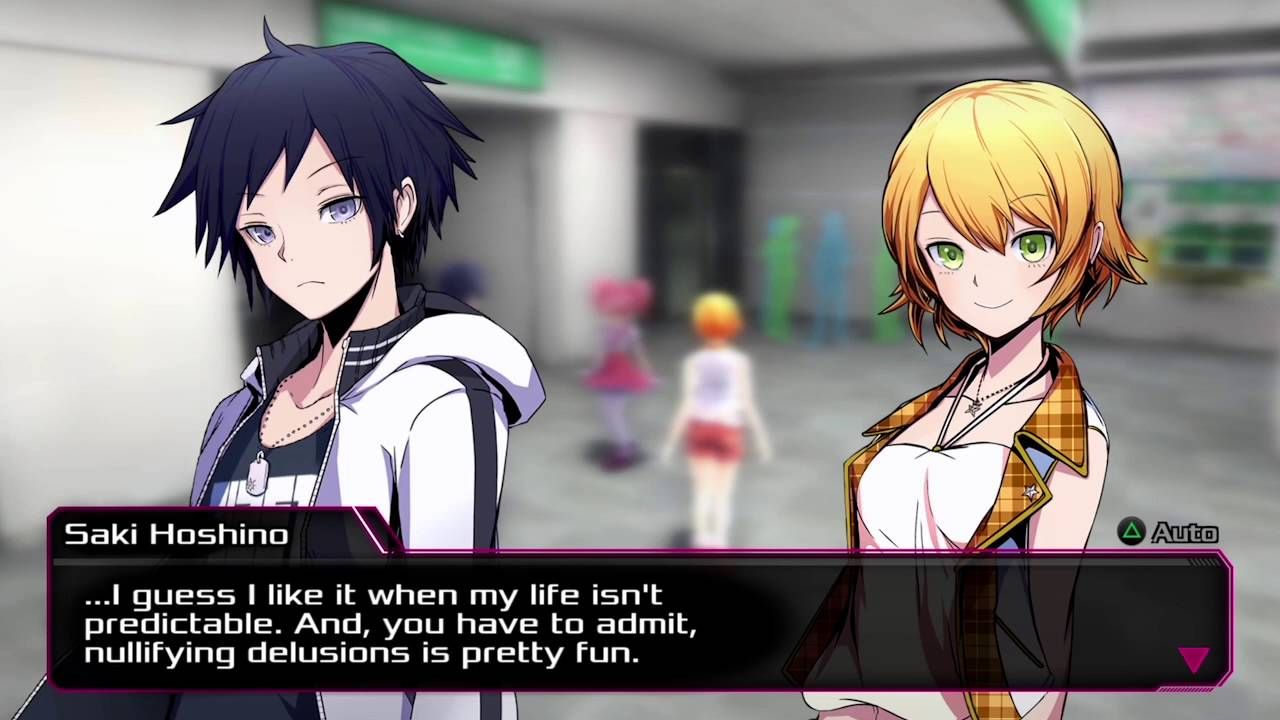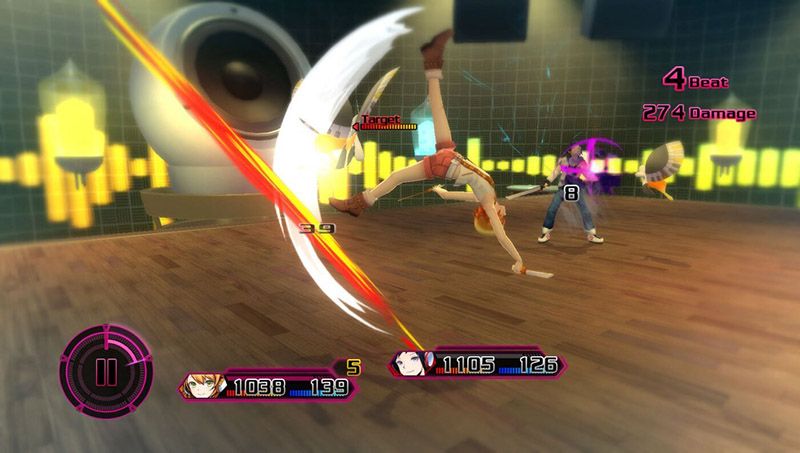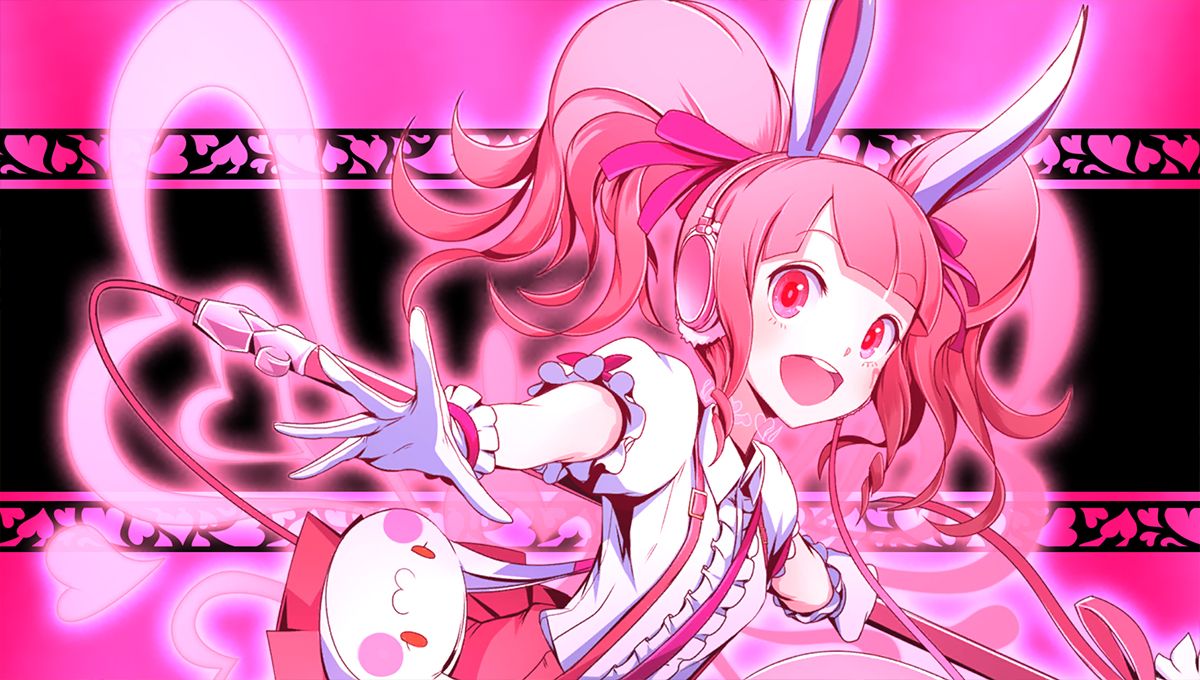Akiba's Beat is an upcoming action JRPG that focuses on otaku culture in a fictional version of the real life district of Akihabara in Tokyo. Players assume the role of NEET protagonist, Asahi Tachibana, who discovers that he is stuck in a strange world of delusions. Throughout the campaign, Asahi will join up with other characters in order to take on these delusions hand on while uncovering the mystery that surrounds Akihabara.
With Akiba's Beat releasing on playStation 4 and PlayStation Vita on May 16 in North America and May 19 in Europe, DualShockers took the opportunity to speak with the Akiba's Beat director Kohta Takano to talk about the game's systems and story as well as learn more the development.
Azario Lopez: Being the director on Akiba's Beat, did the job require you to have a certain knowledge of otaku culture?
Kohta Takano: Well, yes. I imagine it wouldn’t be easy to make a game like this without any knowledge of otaku culture. Luckily, our office is in Akihabara, and many of our staff members understand otaku culture very well, or are otaku themselves, so they also helped me out a great deal.
AL: Akiba's Beat hosts a wide range of “Delusions” that characters attach themselves to throughout the game. These Delusions can be found in the real world as well. What are your thoughts on the ever-growing list of trends and fads that otaku attach themselves to, and is Akiba's Beat trying to teach us anything about getting too attached to these interests? Do you find that you get attached to some of these delusions yourself?
KT: In this game, we’re introducing Akihabara as a district that keeps changing with the times. I think lots of otaku tend to disbelieve these “changes,” trying instead to create their own perfect world based on delusions of the way things were before, and then attaching themselves to that world. And I’m certainly not trying to contradict any such notions; in the game, the main character even says at one point that he and his friends will purposefully keep deluding themselves.
At the same time, the message that I would like to send through the game is that people should try not to dwell too much on the past, or stick with something just because they're used to it, since there's still so much to look forward to in the future. And I hope people will understand this message after playing the game.
I do get attached to some delusions sometimes myself, and if I were to pick a delusion from the game, I’d say it would most likely be the nostalgic delusion created by the Akihabara Freedom Fighters (editor's note: no relation to the Akiba Freedom Fighters in Akiba's Trip). I spent much of my youth in Akihabara, so whenever I go back to the shops that I used to go to, I feel so nostalgic for the way they used to be, and have to face the gap between my ideal and the reality of what they are now. And whenever this happens to me, I always try to tell myself to keep moving forward.
AL: What made you want to bring the Akiba series to the action RPG genre? And what do you feel that Akiba's Beat adds to the genre?
KT: Well, before we came up with Akiba's Beat, there was already an action RPG concept on the table. Then we decided to set the stage in Akihabara based on our office being in the heart of Akihabara and in the Akiba series. And actually, since we keep saying “Akiba series,” some people started misinterpreting this game to be an entry in the Akiba's Trip franchise, but that's not correct: the story and concept are very different. Only the stage, Akihabara, is shared by the two properties.
AL: The Akiba's Trip franchise is known for having over the top “fanservice.” With that said, Akiba's Beat doesn’t boast such in-your-face fanservice scenes. Why step away from the systems previously introduced to the series and opt for a more story and character-driven RPG?
KT: Similar to my previous answer, our plan was to create a brand-new game, so fanservice wasn’t really in the cards even from the start. We had a totally different mindset when we made this game, as opposed to Akiba's Trip.
AL: Did you encounter any difficulties during development? How did you overcome these?
KT: At the start of development, our team didn’t have enough staff members, so it was very difficult to keep moving forward. One of the most unexpected challenges was actually building construction and changes in Akihabara. Akihabara keeps morphing, day by day, and a week after we thought we'd finished all the 3D modeling of the district, we saw the city had started tearing one of the buildings down. We wanted to show the most up-to-date Akihabara we possibly could in the game, so we tried to keep reflecting these small changes during development.
Also, there are so many unique buildings and ads in Akihabara, it’s pretty much impossible for us to assign the same numbers of polygons and textures to all of them, and it was hard to keep them all at the same resolution as well. Since we're so familiar with the district, we decided to "abbreviate" many unknown or less-popular buildings, focusing the majority of detail on iconic landmarks and unique buildings to maintain an overall accurate image of how people tend to remember Akihabara.
AL: Is there anything you wanted to add to the game but ended up leaving out?
KT: Of course. I find that in game development there are always elements and systems you want to include or enhance that would benefit the experience. For example, I wanted to include an online co-op mode, but we were forced to give up on any sort of co-op due to our development team’s size. But it doesn't matter what the reason is that something couldn't be implemented – I feel regret for each and every instance where I wasn’t able to further improve any game I create.
AL: To your knowledge, is there a difference between Japanese and Western gamers, when it comes to what they want from RPGs?
KT: I feel like Western gamers tend toward open-world action RPGs such as Fallout or Skyrim, and Japanese gamers have started playing those types of RPGs as well recently, so the gap between Western and Japanese gamers is steadily narrowing.
AL: Considering there is a pretty large cast of characters, who would you say is your favorite and why?
KT: I love all the characters, but if I had to pick one, I’d choose Yamato Hongo. He’s a stereotypical teen boy, and just watching him try to stay cool in front of others is kind of embarrassing and cute. On the other hand, he's secretly very passionate and deeply caring about his friends and family, and I believe the combination of those two different sides makes him a very charming character. If he were my younger brother, I’d totally spoil him -- even though he’d hate every minute of it.
AL: Now that Akiba's Beat has received a Western release date, are you currently working on any new projects?
KT: I’ve been working on Divine Gate, which I started while still working on Akiba's Beat. I'm also trying to gather some ideas for a new project. My last two titles were serious, story-driven action games, so I’d like to make something that players don’t need to think about too much -- something they can just shut off their brains for and enjoy.
AL: Is there anything you’d like to say to fans of Akiba's Beat or those who are just now hearing about it?
KT: Thank you very much for reading this interview. Akihabara is a very interesting district that's filled to bursting with unique and interesting locals and visitors. Lots of delusions are swirling about, to and fro, just as they are in the game, and I believe those delusions have helped Akihabara change and grow over the years.
The North American and European releases took a while after the Japanese release, but the localization team was very dedicated to this game, even recording English voice-acting for every line, so I believe Western fans can experience a fun and interesting adventure in Akihabara through this title.
Akiba's Beat is not only for JRPG fans, but also for people who are interested in Akihabara and Japanese culture in general, so I hope a wide variety of players give it a shot and have a truly great time exploring Akihabara.

